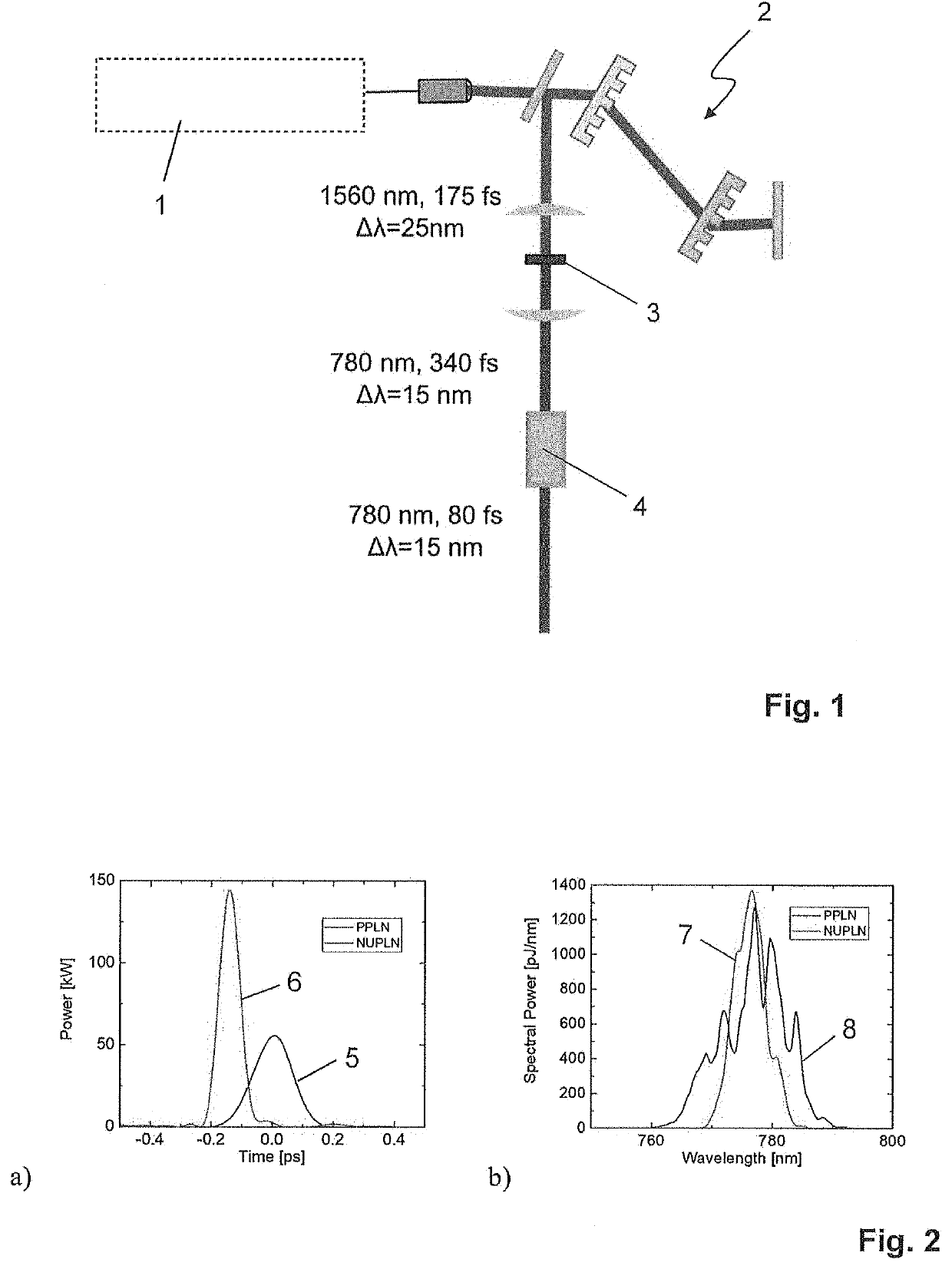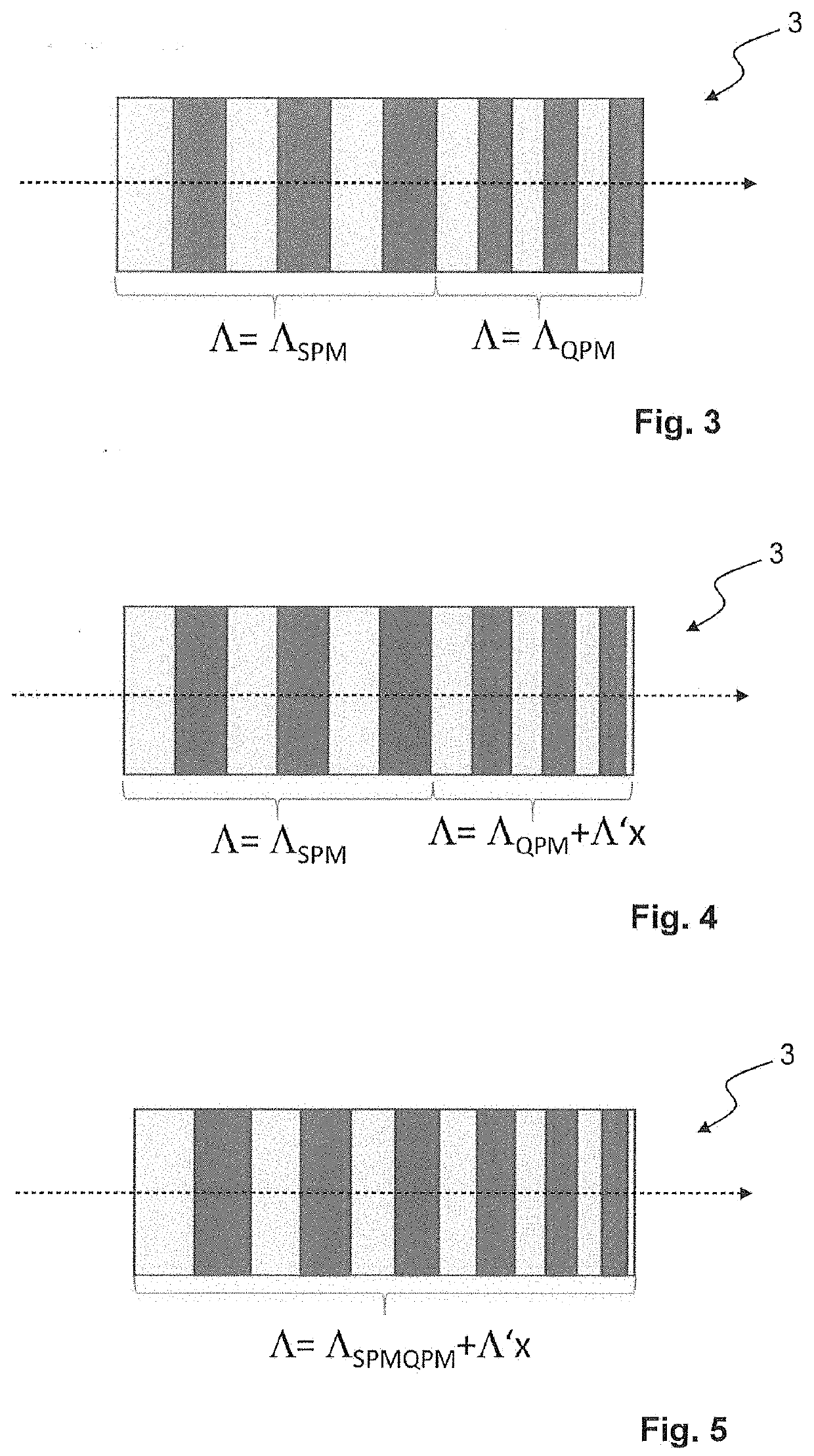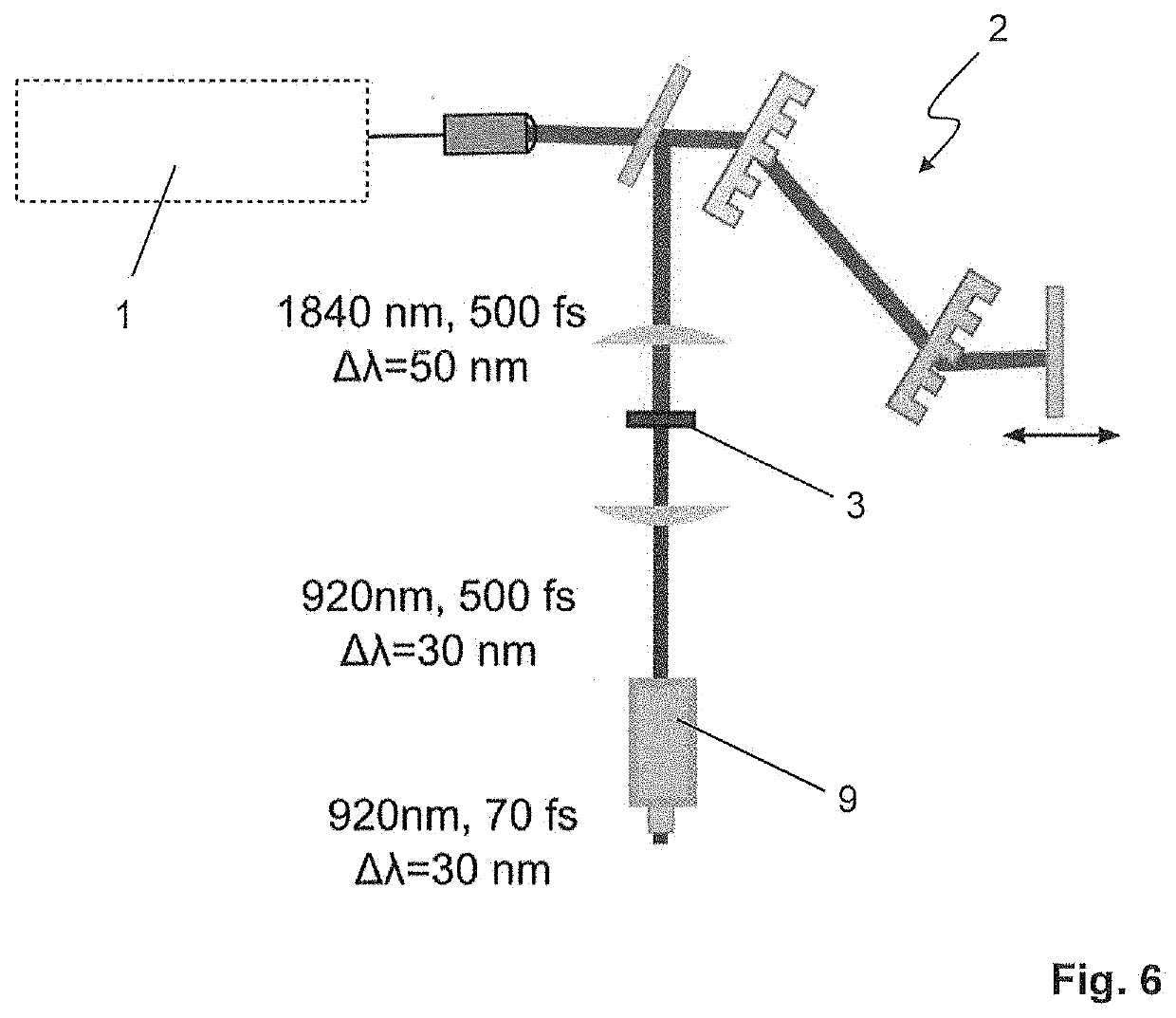Generation of Ultrashort Laser Pulses
a laser pulse and ultra-short technology, applied in the direction of laser details, instruments, electrical equipment, etc., can solve the problems of limited bandwidth of fiber laser gain materials, limited effect, limited shortening, etc., to achieve shortening of laser pulses, limiting bandwidth, and broadening of optical fibers
- Summary
- Abstract
- Description
- Claims
- Application Information
AI Technical Summary
Benefits of technology
Problems solved by technology
Method used
Image
Examples
Embodiment Construction
[0037]FIG. 1 schematically shows an embodiment of a laser system according to the invention.
[0038]The laser system comprises a laser source 1. Laser source 1 may include a rare earth ion-doped fiber laser oscillator (not depicted), which emits a laser pulse train at a fixed repetition rate of, e.g., 100 MHz, a section of dispersive optical fiber (not depicted) to temporally stretch the laser pulses, and a diode-pumped fiber amplifier (not depicted) which receives the chirped laser pulses and boosts their energy such that the average power of the amplified pulse train is on the order of 100 mW or more. The thus amplified laser pulses are coupled out of the optical fiber and are temporally compressed in a grating compressor 2. The resulting laser pulses have a duration of 175 fs at a fundamental wavelength of 1560 nm in the depicted embodiment. The spectral width Δλ of the laser radiation is 25 nm.
[0039]The laser pulses are then passed through a non-uniformly poled Lithium Niobate non...
PUM
| Property | Measurement | Unit |
|---|---|---|
| average power | aaaaa | aaaaa |
| fundamental wavelength | aaaaa | aaaaa |
| length | aaaaa | aaaaa |
Abstract
Description
Claims
Application Information
 Login to View More
Login to View More - R&D
- Intellectual Property
- Life Sciences
- Materials
- Tech Scout
- Unparalleled Data Quality
- Higher Quality Content
- 60% Fewer Hallucinations
Browse by: Latest US Patents, China's latest patents, Technical Efficacy Thesaurus, Application Domain, Technology Topic, Popular Technical Reports.
© 2025 PatSnap. All rights reserved.Legal|Privacy policy|Modern Slavery Act Transparency Statement|Sitemap|About US| Contact US: help@patsnap.com



